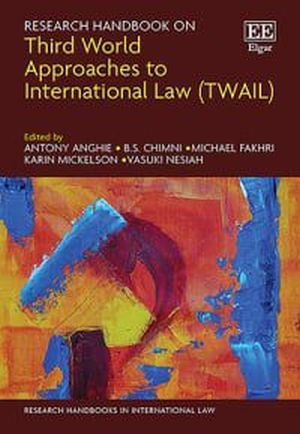
This Research Handbook provides a comprehensive overview of Third World Approaches to International Law (TWAIL) with chapters exploring different facets of TWAIL scholarship. It covers major doctrines and topics of international law, as well as TWAIL perspectives on central historical and theoretical debates.
Expert authors present key insights into various themes that intersect with international law including economics, post-colonialism, religion, development, treaties, and human rights. The Research Handbook underscores the cornerstone concepts of TWAIL and examines their relationship with intellectual traditions such as Marxism and feminism. Contributing authors outline TWAIL’s perspectives on core areas of international law such as customary international law, treaties and human rights, as well as important contemporary issues, including debt, climate change, and public health. Ultimately, the Research Handbook showcases an expanded and enriched vision of international law, assessing how alternate methodologies can lead to a fairer legal system.
Encompassing an authoritative overview of the legacy and future of TWAIL, this Research Handbook is of vital importance to scholars and students of international law, international relations, legal theory, and development studies. It is also an essential reference for lawyers and policymakers in the fiel